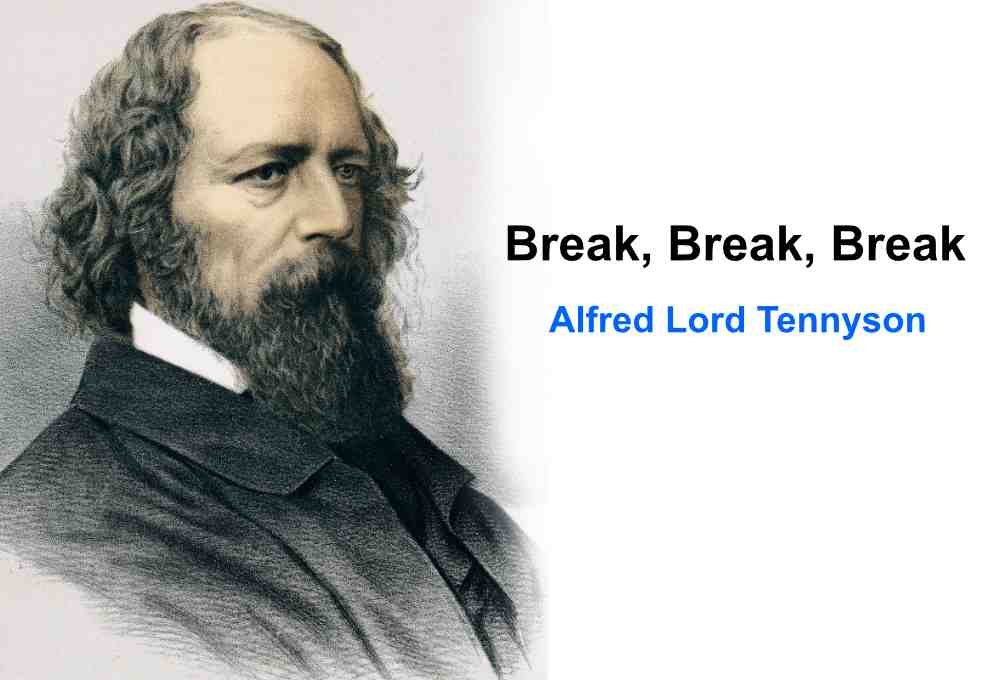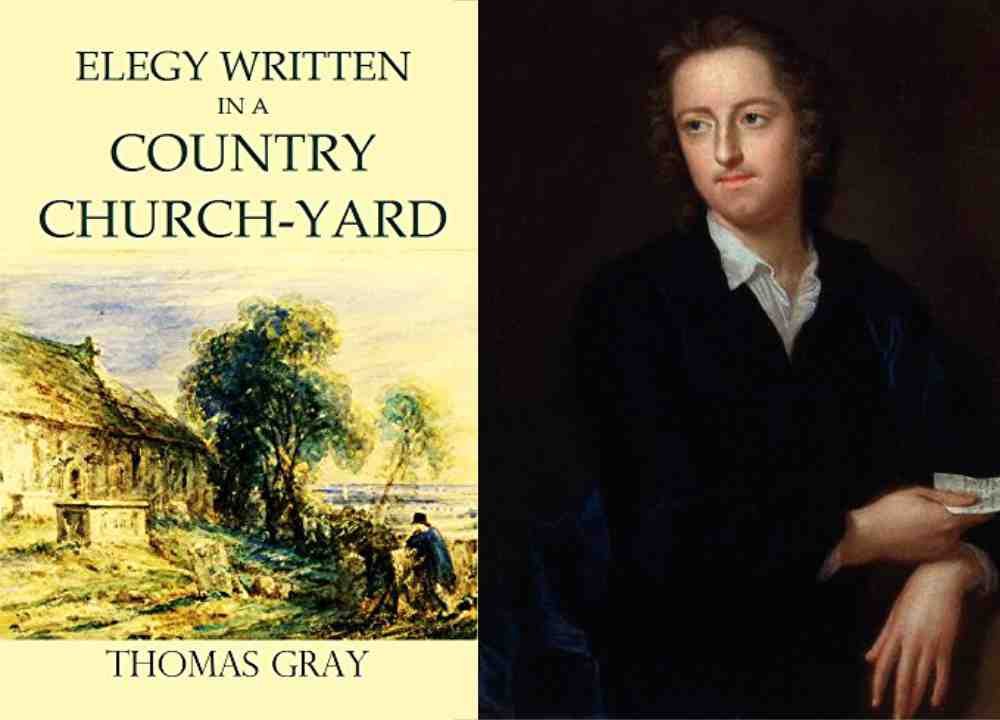Introduction
Table of Contents
The poem “Break, Break, Break” is an outstanding lyric of Alfred Lord Tennyson, the most representative poet of the Victorian Era. This lyric was composed in 1835, two years after the death of Henry Arthur Hallam; the fellow poet and intimate friend of Alfred Tennyson. Though the poem was composed in 1835, but published after nine years of Hallam’s death in 1842.
Background of the poem
The poem expresses Tennyson’s intense feeling on the death of Henry Arthur Hallam. Actually, Tennyson composed this absolute lyric of lament or – the funeral song in the lawns near Somersby, while he was walking there at the time of night. But, contrary to the reality, in “Break Break Break” Tennyson assumes that he is sitting near the grave of his friend in a dejected mood. He; while sitting near the Grave (as told earlier, the poet assumes or thinks so) of Henry Arthur Hallam, he is observing the scene all around him.
Summary and analysis of the poem
The poet directly addresses the sea. He says O sea ! (I urge) you to continuously strike the rocky shore through your (stormy) waves. (Seeing this scene, the poet says) I also desire to express my “thoughts that arise in me” but I (though being drowned in the sea of sorrows) do not get any success in expressing my emotions.
In the sea, the poet watches two pleasant scenes. He says that – it is not the cause of any problem (to him) that the boy of the fisherman is playing with his sister and he is shouting (during the play) with enthusiasm and joy. It is also not the cause of any problem that the boy of the sailor is singing (a sweet song) while sitting in his own “boat on the bay”.
So then what is the problem of the poet, if he has no problem from the two children of a fisherman who are taking the enjoyment of their play; and from the boy of the sailor who is singing? He has the only problem that all are expressing their emotions, but the poet is failed in pouring deep sorrow of his heart.
Break, break, break, On thy cold gray stones, O Sea! And I would that my tongue could utter The thoughts that arise in me. O, well for the fisherman's boy, That he shouts with his sister at play! O, well for the sailor lad, That he sings in his boat on the bay! And the stately ships go on To their haven under the hill; But O for the touch of a vanish'd hand, And the sound of a voice that is still! Break, break, break At the foot of thy crags, O Sea! But the tender grace of a day that is dead Will never come back to me
The last two stanzas of this poem are very important. A minute reader in these stanzas will undoubtedly not only strike the theme of friendship but will understand the philosophy (about it we will talk later )of the poem also; which has been introduced by Tennyson.
(Stanza 3) The poet observes that the ships (after coming back from the voyages) are going to their haven (for the rest). The haven of these ships is “under the hill” in the sea. (Seeing the ships returned from voyages, he wishes if his friend also came back as the ships are returning) The poet keenly desires to touch the hand of his dear friend and to listen to a sweet voice. But now, he neither can touch the hand of his friend nor can hear the voice of him because he died (a few years earlier)
In the last stanza of the lyric also the poet once again says to the sea to constantly strike against the lower part (below part) of the stony shore. He becomes more sorrowful because his virtuous friend with whom he was enjoying life is no more. Additionally, since the dead person never returns to life; this bitter truth increases his distress.
Philosophy of the poem Break, Break, Break
The poem is not a simple song of mourning; as it appears at first sight. The poem is beyond it’s looking. In the initial and final stanza, we observe that the waves of the sea come and strike at the stony shore and then they go back. In the same way, the majestic ships are coming back after their long voyages and now they are going under the hill in the port (stanza 3).
But if a particular person once left the harbour of human life (means dies and left this world of living people; as the friend of the poet has left) he never comes back to his port. Neither that person can return nor their friend and relatives can enjoy life as they were doing in the company of that person who is no more between them. Therefore, it can be said that man’s life is mortal while nature; though it changes but can’t die is immortal.
Characteristics of the poem Break, Break, Break
Lofty subject, a note of the melancholy, pictorial quality of description, sensuousness (stanza 3), use of – figures of speech; alliteration and assonance; and archaic words etc. are some those characteristics of Tennyson’s poetry which are found in this lyric.
u003cstrongu003eWho is the central figure of Tennyson’s poem Break, Break, Break ?u003c/strongu003e
Arthur Henry Hallam is the central figure of lyrical poem Break, Break, Break.
u003cstrongu003eTo Whom the poet watches shouting in the poem Break, Break, Breaku003c/strongu003e?
The boy of the fisherman shouts with his own sister while they both were playing together.
u003cstrongu003eWho sings in the boat in the poem Break, Break, Breaku003c/strongu003e?
The boy of the sailor u0022sings in his boat on the bay !u0022
u003cstrongu003eIn which stanza of Tennyson’s poem Break, Break, Break only children’s pleasant activities are described?u003c/strongu003e
In the second stanza of the poem Tennyson described only pleasant activities of children.
u003cstrongu003eWhat quality of Tennyson makes the poem more remarkable?u003c/strongu003e
It is the observation power of Tennyson that makes the lyrical poem Break, Break, Break more remarkable.
Conclusion
Published in 1842, the poem laments the death of Tennyson‘s close friend. The poet remembers his friend and desires to see him in this world once again. But he knows very well that a person once left this universe can’t come back to it. And this truth not only increases his sorrow but makes it unbearable for him.
Break, Break, Break besides being a mourning song is a philosophical poem also. By reflecting various characteristics of good poetry; the poem provides proof that Tennyson is one of the greatest poets of English Literature.





